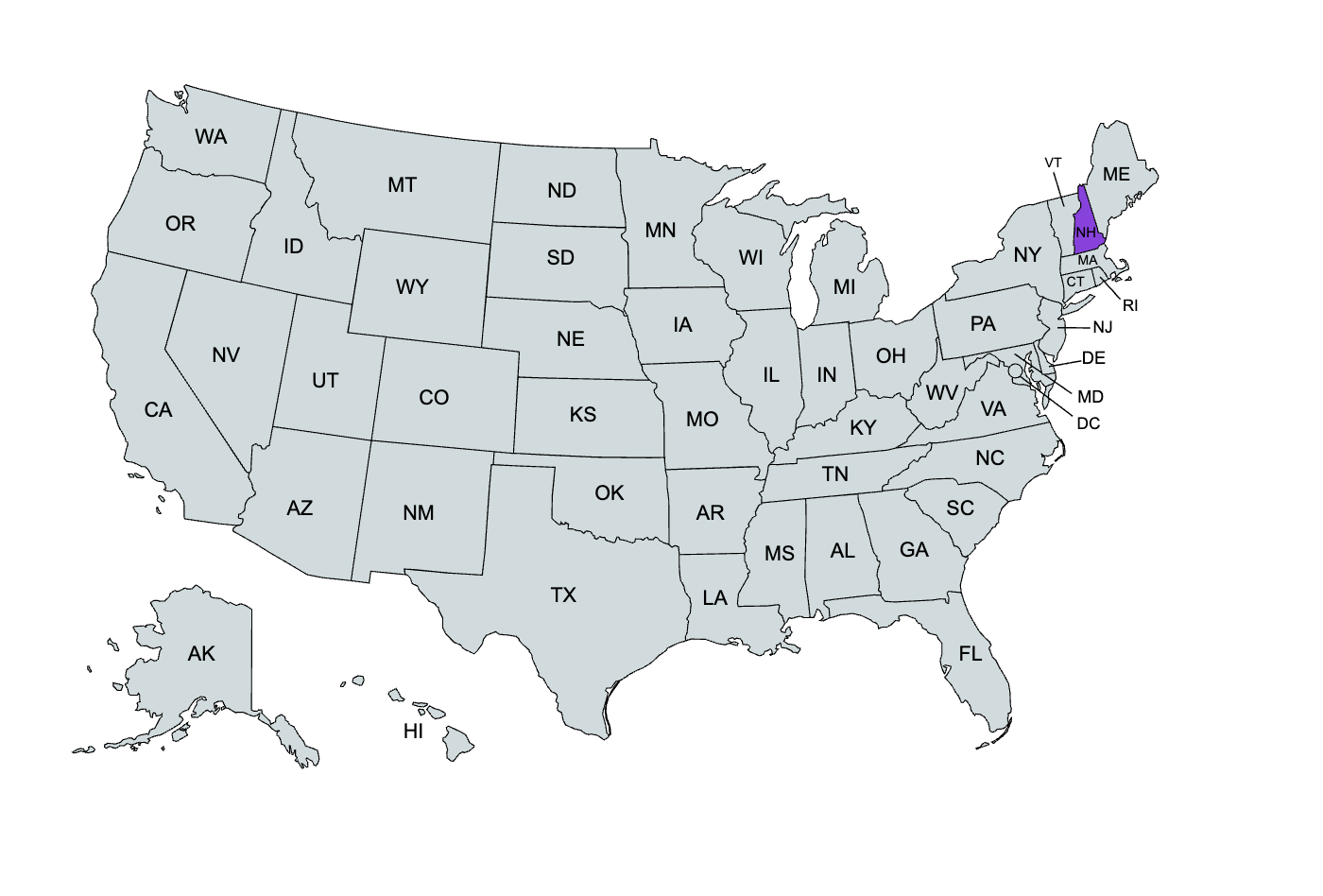New Hampshire Paycheck Calculator: Calculate Your Net Pay
If you’re wondering, “How do I figure out how much money I take home in New Hampshire” we’ve got you covered.
Use our simple paycheck after taxes calculator to estimate your net or “take home” pay after taxes, as an hourly or salaried employee in New Hampshire.
Paycheck Calculator
Meanwhile, get ahead with our free resources:
How Does the Paycheck Calculator Work?
Fill in your salary details including wage and pay frequency, then click "Calculate Tax" for an estimated net pay. You can also check out our salary broken down to hourly and calculate hourly wage.
Overview of New Hampshire Taxes

New Hampshire has a unique tax landscape that sets it apart from many other states. Understanding its nuances can significantly impact your financial planning, whether you're earning a paycheck, running a business, or investing. Here's a breakdown of key tax features in the state:
- Interest and Dividend Tax: New Hampshire imposes a flat 4.00 percent income tax rate, but this is only levied on interest and dividend income. Wage and salary income are not taxed at the state level.
- Corporate Income Tax: If you own a business, be aware that New Hampshire has a 7.50 percent corporate income tax rate.
- Property Taxes: While there is no state income tax on wages and salaries, New Hampshire does have relatively high property taxes, something to consider if you own or are considering buying property.
- Sales Tax: New Hampshire does not have a state or local sales tax, making it an attractive location for shoppers and residents alike.
- Local Taxes: As of the current information, New Hampshire does not levy local sales taxes, but it's always advisable to check for any municipal-specific fees or taxes.
Median Household Income in New Hampshire
Salary in each state is typically based on the cost of living. While salaries vary widely based on position, the median household income in your state can give you a glimpse at the average salary a household is earning in your region. Understanding the median household income in a particular region can provide valuable context for your own earnings, budget, and financial planning.
The median household income in the Granite State has generally shown an upward trend over the years, with some fluctuations. There was a noticeable decrease in median household income from 2020 to 2021. In 2020, it was $93,045, but it dropped to $88,841 in 2021. Over the longer term, however, there has been significant growth. For example, between 2011 and 2021, median household income increased by approximately $9,000.
Tips for Maximizing Your Paycheck
Boost your income with these expert tips:
- Master payroll deductions
- Take advantage of work perks
- Create a solid and informed financial plan
- Explore extra earning opportunities
- Stay on top of your pay stubs
